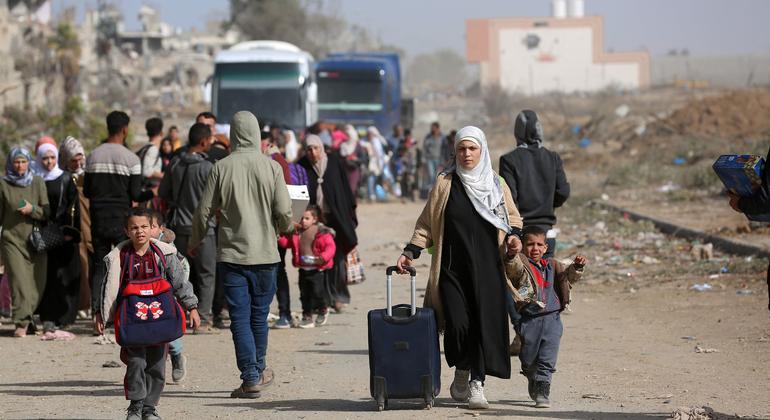“We welcome the timely action taken by Switzerland to suspend the children’s return to Bulgaria, in compliance with the Committee’s request for interim measures,” said Ann Skelton, a member of the Committee on the Rights of the Child (CRC).
“We also welcome the decision to reassess these children’s situation and their risk of being exposed to cruel, inhuman and degrading treatments if returned to Bulgaria, showcasing the country’s commitment to compliance and cooperation with the Committee,” she added.
Fleeing war-torn Syria
The children, now 10 to 14, were born to a young mother, a victim of sexual violence who was forced into marriage at age 11 and gave birth to her first child at age 14. Fleeing war-ravaged Syria in early 2017, the family arrived in Bulgaria, which granted the parents and children refugee status and asylum.
Violent father
Expulsion from the asylum camp and the father’s extremely violent behaviour led the mother and her children to beg for food on the streets then, three months later, to seek asylum in Germany, which granted her protection measures in 2019.
Fearing her husband, she took the children to Switzerland to seek asylum once again, but failed.
Following the Swiss State Secretariat for Migrations order in August 2020 to deport the family to Bulgaria and a dismissed appeal of that decision, the mother and children petitioned the UN child rights committee.
Members requested Swiss authorities to adopt interim measures to suspend the deportation pending its consideration of the complaint, in line with an optional protocol to the Convention on the Rights of the Child.
More asylum cases reopened
Swiss authorities then reopened the cases of the children and their mother, recognizing them as refugees. Following that action, the Committee issued a decision Thursday to discontinue the examination of the family’s complaint.
“This is the fifth case in which Switzerland has immediately reopened asylum proceedings following the registration of the cases with the Committee and granted children residence permits after reassessing their situation,” Ms. Skelton said. “This shows the potential of the complaints mechanism to bring immediate relief to children.”





















Discussion about this post